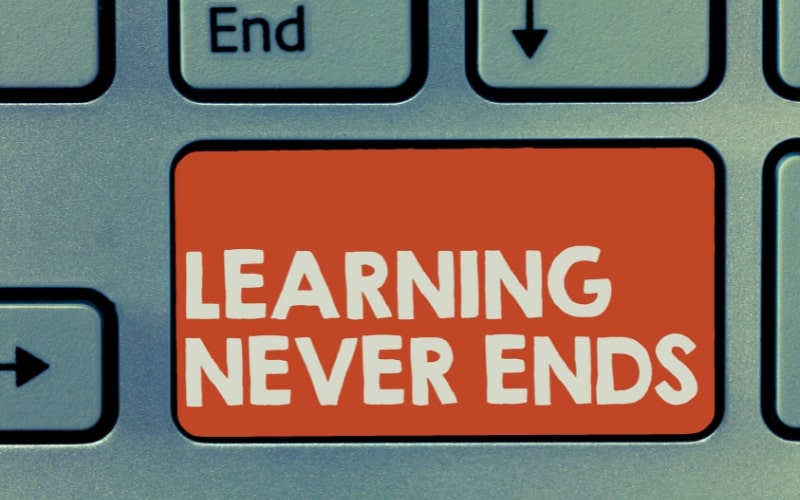- 1. Professional Expertise and Experience Makes a Great Candidate
- 2. Cultural Fit and Soft Skills make a Great Candidate
- 3. Leadership and Decision-Making Abilities Make a Great Candidate
- 4. Innovative Thinking and Problem-Solving Skills Will Make You a Great Candidate
- 5. Commitment to Continuous Learning and Development Will Make You a Great Candidate
- Conclusion: What Makes A Great Candidate?
In today’s competitive job market, identifying great candidates goes beyond simply reviewing resumes and conducting interviews. Employers must look for a blend of professional expertise, cultural alignment, leadership capabilities, innovative thinking, and a commitment to continuous learning. These attributes are crucial when considering the 5 Qualities: What Makes a Great Candidate? These qualities collectively contribute to the overall potential and effectiveness of a candidate. By understanding and evaluating these key traits, organizations can ensure they select individuals who not only possess the necessary skills and experience but also have the potential to drive the company towards future success.
1. Professional Expertise and Experience Makes a Great Candidate

When it comes to identifying what makes a great candidate, professional expertise and experience are paramount. These elements form the foundation of a candidate’s ability to perform effectively in their role and contribute meaningfully to an organization’s success. In this section, we’ll delve into why these factors are critical and how they can be assessed during the hiring process.
The Importance of Relevant Industry Experience
Relevant industry experience is a key factor in determining what makes a great candidate. It ensures that a candidate possesses the specific knowledge and skills needed to navigate the complexities of the job. For example, in executive roles, it’s not just about understanding the technical aspects of the job but also about grasping industry trends, market dynamics, and the competitive landscape. A candidate with extensive experience in a similar industry will likely have a shorter learning curve, allowing them to hit the ground running and start making impactful decisions sooner.
Experienced candidates bring a wealth of knowledge gained from past roles, which can be invaluable. They have encountered and resolved various challenges, giving them a nuanced understanding of what works and what doesn’t. This experience can translate into innovative solutions and strategies for the new organization. Moreover, they are often well-versed in industry best practices and can bring fresh perspectives that might not be present within the current team. Thus, relevant industry experience is crucial in understanding what makes a great candidate.
Demonstrated Success and Track Record
A great candidate should have a track record of success that can be objectively measured. This includes specific achievements and milestones that demonstrate their ability to deliver results. For instance, an executive candidate might have a history of driving significant revenue growth, successfully leading major projects, or turning around underperforming departments. These accomplishments indicate that the candidate not only understands their role but excels in it, which is key to understanding what makes a great candidate.
When evaluating a candidate’s track record, it’s essential to look beyond the resume. References from previous employers, detailed case studies of past projects, and performance metrics can provide deeper insights into the candidate’s capabilities. It’s also helpful to ask behavioral interview questions that encourage candidates to discuss how they’ve handled challenges and achieved their goals. This approach allows recruiters to gauge the candidate’s problem-solving abilities and strategic thinking. Obviously, demonstrated success and a good track record are crucial components of what makes a great candidate.
Key Skills and Expertise
Professional expertise encompasses a broad range of skills that are critical for success in any role. For executive positions, these skills often include strategic planning, financial acumen, market analysis, and leadership. Understanding what makes a great candidate involves identifying a robust skill set that equips an individual to handle the diverse demands of an executive role and contribute to the company’s strategic objectives.
Moreover, expertise in specific tools and technologies relevant to the industry can set a candidate apart. For example, proficiency in data analytics software can be a significant advantage for a candidate in a data-driven industry. Similarly, understanding advanced manufacturing techniques would be crucial for an executive in a production-focused company. As industries evolve, staying updated with the latest tools and technologies is essential, and candidates who proactively develop these skills are often more valuable. Most definitely, key skills and expertise are what makes a great candidate.
Assessment Techniques
Evaluating a candidate’s professional expertise and experience requires a multi-faceted approach. Interviews should be designed to probe the depth of their knowledge and the relevance of their experience. Technical assessments and case studies can be used to test specific skills and problem-solving abilities. Additionally, psychometric tests can provide insights into the candidate’s cognitive abilities and how they apply their knowledge in practical scenarios.
References from previous employers are also invaluable. They can confirm the candidate’s achievements and provide context about their work ethic, reliability, and ability to collaborate with others. It’s important to ask specific questions that can reveal how the candidate applied their expertise in past roles and contributed to their team’s success.
2. Cultural Fit and Soft Skills make a Great Candidate

When evaluating what makes a great candidate, it’s crucial to consider cultural fit and soft skills alongside professional expertise and experience. Understanding what makes a great candidate goes beyond just technical skills and industry knowledge; it also involves assessing how well a candidate meshes with the company’s culture and their ability to exhibit strong soft skills. These factors can significantly impact their success and longevity within the organization. In this section, we will explore why cultural fit and soft skills are essential, how to assess them, and their benefits to both the candidate and the organization.
The Significance of Cultural Fit
Cultural fit refers to how well a candidate’s values, beliefs, and behaviors align with the company’s culture. This alignment is essential because it affects what makes a great candidate truly excel in their role, including how they will interact with colleagues, handle conflicts, and contribute to the overall work environment. A good cultural fit ensures that the candidate can integrate seamlessly into the team, fostering a cohesive and collaborative atmosphere. Understanding what makes a great candidate also involves recognizing the importance of cultural flexibility as a crucial skill necessary for success.
Assessing Cultural Fit
Evaluating cultural fit is crucial in understanding what makes a great candidate for your company. Recruiters and hiring managers should have a clear picture of the company’s core values, mission, and work environment to identify what makes a great candidate. This understanding allows them to frame interview questions and scenarios that reveal a candidate’s alignment with these elements. For instance, if a company values innovation and risk-taking, interview questions might focus on the candidate’s experiences with creative problem-solving and willingness to take calculated risks.
Another effective method for assessing cultural fit is involving team members in the interview process. Peer interviews can provide insights into how the candidate interacts with potential colleagues and whether their personality and work style align with the team’s dynamics. Additionally, informal interactions, such as a casual lunch or coffee meeting, can help gauge the candidate’s compatibility with the company culture in a less formal setting.
The Role of Soft Skills
Soft skills, such as communication, empathy, teamwork, and adaptability, are critical for success in any role, particularly in leadership positions. These skills enable candidates to build strong relationships, navigate complex social dynamics, and respond effectively to changing circumstances. In today’s interconnected and rapidly evolving business landscape, soft skills are often the differentiators that set great candidates apart from the merely good ones.
Communication Skills
Effective communication is at the heart of successful teamwork and leadership, and it’s a key factor in determining what makes a great candidate. Candidates who can articulate their ideas clearly, listen actively, and provide constructive feedback are invaluable. These qualities are essential in what makes a great candidate, as they help foster an environment where information flows freely, misunderstandings are minimized, and collaboration is enhanced. During the interview process, assessing a candidate’s communication skills can involve asking them to explain complex concepts, describe past conflicts and how they resolved them, and demonstrate their ability to listen and respond thoughtfully.
Empathy and Emotional Intelligence
Empathy and emotional intelligence are key factors in determining what makes a great candidate. Candidates with high emotional intelligence can understand and manage their own emotions while also recognizing and influencing the emotions of others. This ability is crucial for creating a positive work environment, managing stress, and driving team performance. Understanding what makes a great candidate involves exploring how they handle difficult conversations, support team members, and respond to feedback, which can provide valuable insights into their emotional intelligence.
Teamwork and Collaboration
The ability to work well with others is fundamental to organizational success and is a key factor in determining what makes a great candidate. Candidates who excel at teamwork and collaboration can seamlessly integrate into existing teams, contribute to group efforts, and help resolve conflicts, all of which are crucial elements in what makes a great candidate. Behavioral interview questions that explore past experiences with team projects, leadership roles, and conflict resolution can reveal a candidate’s teamwork capabilities. Additionally, group exercises or role-playing scenarios can provide a practical assessment of their collaborative skills.
Adaptability and Flexibility
In today’s dynamic business environment, adaptability and flexibility are crucial traits. Candidates who can quickly adjust to new situations, embrace change, and remain resilient in the face of challenges exemplify what makes a great candidate. These traits ensure that the candidate can thrive in a fast-paced and ever-changing work environment. When evaluating what makes a great candidate, assessing adaptability involves questions about how they have handled unexpected changes, learned new skills, and managed stress in previous roles.
3. Leadership and Decision-Making Abilities Make a Great Candidate

Leadership and decision-making abilities are pivotal traits that distinguish what makes a great candidate, especially for executive and managerial roles. These qualities enable individuals to guide teams, make strategic decisions, and drive organizational success. In this section, we will explore what makes a great candidate by examining the importance of leadership and decision-making, how to assess these abilities, and their impact on a candidate’s effectiveness.
The Importance of Leadership
Leadership is more than just a title or position; it involves influencing and motivating others to achieve common goals. Effective leaders, who understand what makes a great candidate, inspire their teams by fostering an environment of collaboration, innovation, and accountability. They possess a vision for the future and can communicate this vision in a way that engages and energizes their team members. Understanding what makes a great candidate is essential for setting direction, building trust, and driving performance. Leadership plays a crucial role in guiding teams towards success by embodying these qualities.
Key Leadership Qualities
Several key qualities define strong leadership:
Vision: Great leaders have a clear and compelling vision for the future. They can see the big picture and understand how to navigate toward long-term goals. This vision provides direction and purpose, helping teams stay focused and motivated.
Communication: Effective communication is crucial for leadership. Leaders must be able to articulate their vision, provide clear instructions, and offer constructive feedback. Good communication fosters transparency, trust, and collaboration within the team.
Empathy: Empathetic leaders understand and consider the emotions and perspectives of their team members. This quality helps build strong relationships, enhances morale, and promotes a supportive work environment.
Integrity: Integrity involves being honest, ethical, and consistent in actions and decisions. Leaders with integrity earn the respect and trust of their team, creating a culture of accountability and reliability.
Adaptability: In a rapidly changing business environment, adaptability is crucial. Great leaders can pivot strategies, embrace new ideas, and remain resilient in the face of challenges.
The Role of Decision-Making
Decision-making is a core component of effective leadership. Leaders are often required to make tough decisions that can impact the entire organization. To determine what makes a great candidate for leadership roles, strong decision-making involves analyzing information, considering various perspectives, and choosing the best course of action. It requires a balance of intuition, experience, and rational thinking.
Assessing Leadership and Decision-Making Abilities
Evaluating a candidate’s leadership and decision-making abilities can be challenging, but several techniques can help:
Behavioral Interviews: Behavioral interview questions focus on past experiences and actions. Questions such as “Can you describe a time when you led a team through a difficult project?” or “How do you approach making tough decisions?” provide insights into the candidate’s leadership style and decision-making process.
Situational Judgement Tests: These tests present candidates with hypothetical scenarios and ask them to choose the best response. They help assess how candidates would handle real-world challenges and make decisions under pressure.
References: Speaking with previous employers and colleagues can provide valuable information about a candidate’s leadership abilities and decision-making skills. References can offer specific examples of how the candidate performed in leadership roles.
Assessment Centers: These are structured programs that simulate job-related tasks and challenges. They allow candidates to demonstrate their leadership and decision-making abilities in a controlled environment.
Impact on Organizational Success
Leadership and decision-making abilities significantly impact an organization’s success. Effective leaders drive performance, foster innovation, and create a positive work culture. They can navigate through uncertainty, make strategic decisions, and steer the organization toward its goals. Understanding what makes a great candidate for leadership roles involves assessing these crucial qualities.
In executive roles, strong leadership is essential for managing change, addressing complex issues, and ensuring long-term sustainability. Leaders with excellent decision-making skills can evaluate risks, seize opportunities, and make informed choices that benefit the organization. Identifying what makes a great candidate in these positions helps in selecting individuals who are equipped to lead effectively and drive the organization’s success.
4. Innovative Thinking and Problem-Solving Skills Will Make You a Great Candidate

In the competitive landscape of modern business, innovative thinking and problem-solving skills are indispensable traits that define what makes a great candidate. These skills are essential for navigating the complexities of today’s dynamic work environment and driving an organization towards sustained success. Understanding what makes a great candidate involves exploring why innovative thinking and problem-solving abilities are critical, how to assess these skills, and their impact on a candidate’s effectiveness.
The Importance of Innovative Thinking
Innovative thinking involves the ability to generate new ideas, approaches, and solutions that break away from traditional patterns. It is a mindset that embraces creativity and is open to exploring uncharted territories. Innovative thinkers are not constrained by conventional methods; instead, they seek out novel ways to tackle challenges and seize opportunities. Understanding what makes a great candidate often includes assessing their capacity for innovative thinking, as this quality is vital for fostering a culture of continuous improvement and staying ahead of the competition.
In a rapidly evolving market, businesses must innovate to remain relevant. Candidates who exhibit innovative thinking can help drive product development, enhance operational efficiencies, and improve customer experiences. By recognizing what makes a great candidate, organizations can identify those who bring fresh perspectives and breakthrough solutions, positioning the organization as a leader in its industry.
Problem-Solving Skills
Problem-solving skills are closely linked to innovative thinking but focus more on the ability to analyze issues, identify root causes, and implement effective solutions. When considering what makes a great candidate, problem-solving is a crucial factor. Great problem-solvers approach challenges methodically, using critical thinking and analytical skills to dissect problems and devise strategic responses. Their ability to navigate obstacles and find practical solutions further underscores what makes a great candidate in any competitive field.
Effective problem-solving involves several key steps:
Identification: Recognizing the existence of a problem and understanding its scope and impact.
Analysis: Gathering relevant information, identifying underlying causes, and assessing the situation.
Solution Generation: Brainstorming potential solutions, considering various perspectives, and evaluating options.
Implementation: Executing the chosen solution and monitoring its effectiveness.
Evaluation: Reviewing the outcomes and making necessary adjustments to ensure long-term success.
Candidates with strong problem-solving skills can adapt to changing circumstances, make informed decisions, and lead their teams through challenging situations.
Assessing Innovative Thinking and Problem-Solving Skills
Evaluating a candidate’s innovative thinking and problem-solving abilities can be challenging but can be effectively done through various techniques:
Behavioral Interviews: Ask candidates to describe past experiences where they had to think innovatively or solve complex problems. Questions such as “Can you provide an example of a time when you developed a creative solution to a difficult problem?” can reveal insights into their thinking process.
Case Studies and Simulations: Present candidates with hypothetical scenarios or real-life business problems and ask them to develop and present solutions. This approach allows you to observe their problem-solving skills and innovative thinking in action.
Portfolio Reviews: For candidates in fields like design, engineering, or marketing, reviewing their portfolios can provide evidence of their ability to innovate and solve problems. Look for projects that demonstrate creativity, strategic thinking, and successful outcomes.
Reference Checks: Speak with former employers or colleagues to gather insights into the candidate’s problem-solving abilities and their capacity for innovative thinking. References can provide specific examples of how the candidate has excelled in these areas.
Impact on Organizational Success
Innovative thinking and problem-solving skills are key traits in answering the question of what makes a great candidate. Candidates who embody what makes a great candidate can drive growth, efficiency, and competitive advantage within an organization. They are often the catalysts for positive change, introducing new ideas that improve processes, products, and services.
In leadership roles, innovative thinkers inspire their teams to embrace creativity and seek out novel solutions. They create an environment where experimentation is encouraged, and failure is viewed as a learning opportunity. This culture of innovation fosters continuous improvement and can lead to significant breakthroughs.
Effective problem-solvers enhance operational efficiency by addressing issues promptly and effectively. They reduce downtime, improve productivity, and contribute to a smoother, more resilient organization. Their ability to navigate challenges and implement solutions ensures that the organization can adapt to changing market conditions and maintain its competitive edge.
5. Commitment to Continuous Learning and Development Will Make You a Great Candidate

In an ever-evolving professional landscape, the commitment to continuous learning and development is a crucial attribute that defines a great candidate. This commitment reflects a candidate’s willingness to stay current with industry trends, acquire new skills, and adapt to changing environments. Such individuals are invaluable assets to any organization, driving innovation, and maintaining competitive advantage. This section explores the importance of continuous learning and development, methods to assess this trait, and its impact on a candidate’s effectiveness.
The Importance of Continuous Learning and Development
Continuous learning and development refer to an ongoing process of acquiring new knowledge and skills throughout one’s career. This approach is vital for several reasons:
Adaptability: The business world is in a constant state of flux, with new technologies, methodologies, and regulations emerging regularly. Candidates committed to continuous learning can adapt quickly to these changes, ensuring they remain relevant and effective in their roles.
Innovation: A culture of learning fosters creativity and innovation. Employees who are encouraged to learn and grow are more likely to bring fresh ideas and solutions to the table, driving the organization forward.
Career Progression: For candidates, continuous learning is key to career advancement. It enables them to take on new challenges, move into leadership positions, and achieve their professional goals.
Organizational Growth: Companies that invest in the continuous development of their employees benefit from a more skilled and knowledgeable workforce. This investment translates into higher productivity, improved performance, and greater overall success.
Assessing Commitment to Continuous Learning and Development
Evaluating a candidate’s dedication to continuous learning involves looking for specific indicators and using targeted assessment techniques:
Education and Certifications: Review the candidate’s educational background and any additional certifications or training they have pursued. Frequent enrollment in courses, workshops, and industry certifications indicates a strong commitment to learning.
Professional Development Activities: Ask candidates about their participation in professional development activities. This could include attending conferences, webinars, or industry events. Their involvement in such activities demonstrates a proactive approach to staying updated with industry trends.
Learning Initiatives: In interviews, inquire about the candidate’s recent learning initiatives. Questions like “What new skills have you learned recently, and how have you applied them in your work?” can provide insights into their commitment to growth.
Self-Learning: Assess the candidate’s self-learning habits. Individuals who regularly read industry publications, listen to relevant podcasts, or engage with online learning platforms like Coursera or LinkedIn Learning are often highly motivated to develop themselves continuously.
References: Speaking with previous employers or colleagues can also shed light on the candidate’s learning attitude. References can provide specific examples of how the candidate has pursued learning opportunities and applied new knowledge in their role.
Impact on Organizational Success
Candidates with a strong commitment to continuous learning and development bring numerous benefits to an organization:
Enhanced Skills and Knowledge: Continuously learning employees are more skilled and knowledgeable, which translates into better job performance and higher quality work. They are better equipped to handle complex tasks and solve problems effectively.
Agility and Flexibility: Organizations with employees who are committed to learning can adapt more easily to changes in the market or industry. These employees are more flexible and can quickly pivot to new strategies or technologies.
Leadership Potential: Continuous learners are often well-prepared for leadership roles. Their broad knowledge base and willingness to learn make them effective leaders who can inspire and guide their teams through change.
Increased Innovation: A workforce that values learning is more likely to be innovative. Employees who seek out new information and ideas are more likely to develop creative solutions and drive the company’s innovation efforts.
Employee Retention: Companies that support and encourage continuous learning tend to have higher employee satisfaction and retention rates. Employees feel valued and are more likely to stay with an organization that invests in their growth and development.
Conclusion: What Makes A Great Candidate?
Ultimately, the quest for great candidates requires a holistic approach that encompasses professional expertise, cultural fit, leadership qualities, innovative problem-solving abilities, and a dedication to continuous learning. Each of these elements plays a critical role in determining a candidate’s suitability and potential for long-term success within the organization. By focusing on these key areas, employers can build a strong, dynamic, and forward-thinking team capable of navigating the complexities of the modern business landscape and driving sustained organizational growth. Read about How To Work With Recruiters.


